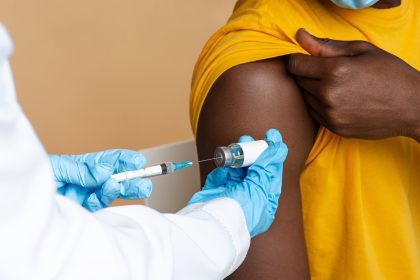For many women, menopause is expected to arrive in their early 50s, but some face this life change decades earlier. New research suggests this early transition might carry unexpected health risks, particularly regarding breast cancer.
The unexpected connection
A groundbreaking study published in The Journal of Clinical Endocrinology & Metabolism has uncovered a concerning link between early menopause and breast cancer risk, adding a new layer of complexity to women’s health considerations. The research reveals that women experiencing premature menopause might face nearly double the risk of developing breast cancer compared to those who experience menopause at the typical age.
Understanding early menopause
Early menopause, medically known as primary ovarian insufficiency (POI), occurs when a woman’s ovaries stop functioning before age 40. While natural menopause typically begins around age 51, POI affects about 1% of women under 40, leading to various physical and emotional challenges.
8 key findings from the new research
- Risk assessment: Women with POI showed approximately twice the likelihood of developing breast cancer compared to the general population. This finding emerged from analyzing medical records of 613 women with POI and 165 women who experienced early menopause.
- Genetic factors: Researchers discovered potential shared genetic pathways between POI and breast cancer development, suggesting that some women might be predisposed to both conditions.
- Hormonal impact: The study indicated that the sudden hormonal changes associated with early menopause might trigger cellular changes that increase cancer risk.
- Age considerations: Women who experienced menopause before 40 showed different risk patterns compared to those who underwent the transition between 40 and 45.
- Family history significance: The research highlighted the importance of considering family history when assessing breast cancer risk in women with POI.
- Screening recommendations: Based on the findings, researchers suggest earlier and more frequent breast cancer screenings for women with POI.
- Treatment implications: The study results may influence how healthcare providers approach hormone replacement therapy in women with POI.
- Long-term monitoring: The research emphasizes the need for extended health monitoring of women who experience early menopause.
Recognizing early menopause symptoms
Women experiencing POI often face numerous symptoms that mirror natural menopause, including:
Night sweats that can disrupt sleep patterns and daily activities Hot flashes occurring throughout the day Mood changes ranging from irritability to anxiety Decreased sexual desire and potential discomfort during intimacy Vaginal dryness that may affect daily comfort Difficulty concentrating or memory changes Irregular or missed periods before complete cessation Fertility challenges that might affect family planning
Prevention strategies and risk management
Medical experts emphasize that while early menopause itself cannot be prevented, women can take several steps to manage their breast cancer risk:
Regular exercise: Maintaining an active lifestyle with at least 150 minutes of moderate exercise weekly can help reduce cancer risk.
Dietary modifications: Emphasizing a diet rich in fruits, vegetables, and whole grains while limiting processed foods and red meat.
Alcohol moderation: Limiting alcohol consumption to no more than one drink per day, as alcohol has been linked to increased breast cancer risk.
Weight management: Maintaining a healthy weight through proper nutrition and regular exercise, as excess body fat can increase cancer risk.
Stress reduction: Incorporating stress-management techniques such as meditation, yoga, or regular counseling sessions.
The role of genetic testing
Given the potential genetic connection between POI and breast cancer, healthcare providers might recommend genetic testing for women with early menopause. This testing can help:
Identify specific genetic mutations that might increase cancer risk Guide decisions about preventive measures Inform family members about potential health risks Determine appropriate screening schedules Assist in making decisions about preventive treatments
Creating a comprehensive screening plan
Women diagnosed with POI should work with their healthcare providers to develop an individualized screening protocol that might include:
Earlier initiation of mammograms, potentially starting before age 40 More frequent clinical breast examinations Regular gynecological check-ups Consideration of additional imaging techniques such as MRI Regular monitoring of hormonal levels
Impact on hormone replacement therapy decisions
The research findings have implications for hormone replacement therapy (HRT) considerations:
Benefits of HRT might outweigh risks for some women with POI Individual risk assessment becomes crucial in treatment planning Regular monitoring during HRT treatment Consideration of alternative treatments for those at highest risk
Supporting emotional and mental health
Dealing with both early menopause and increased breast cancer risk can take an emotional toll. Support strategies include:
Connecting with support groups specifically for women with POI Seeking counseling to address anxiety and depression Maintaining open communication with family and friends Working with mental health professionals who specialize in women’s health Participating in stress-reduction activities
Future research directions
The medical community continues to investigate several aspects of the POI-breast cancer connection:
Identifying specific genetic markers that might predict both conditions Developing more targeted screening protocols Investigating potential preventive treatments Studying the long-term impacts of various management strategies Exploring new treatment options for both conditions
Making informed healthcare decisions
Women diagnosed with POI should take several steps to protect their health:
Schedule regular check-ups with their healthcare provider Maintain detailed family medical histories Stay informed about the latest research and treatment options Consider joining clinical trials when appropriate Document any new symptoms or concerns
Looking ahead: advances in treatment and prevention
The medical community continues to make strides in understanding and treating both POI and breast cancer:
New screening technologies are being developed Targeted treatments are showing promise Genetic research is uncovering new insights Preventive strategies are becoming more refined Support systems are expanding
The connection between early menopause and breast cancer risk represents a complex interplay of hormonal, genetic, and environmental factors. While the increased risk is concerning, women with POI can take proactive steps to protect their health through regular screening, lifestyle modifications, and close collaboration with healthcare providers.
Understanding these risks and available management strategies empowers women to make informed decisions about their health care. As research continues and medical knowledge expands, treatment and prevention options will likely become even more effective and personalized.
Remember that each woman’s situation is unique, and healthcare decisions should be made in consultation with medical professionals who can provide individualized advice based on personal health history and risk factors.














